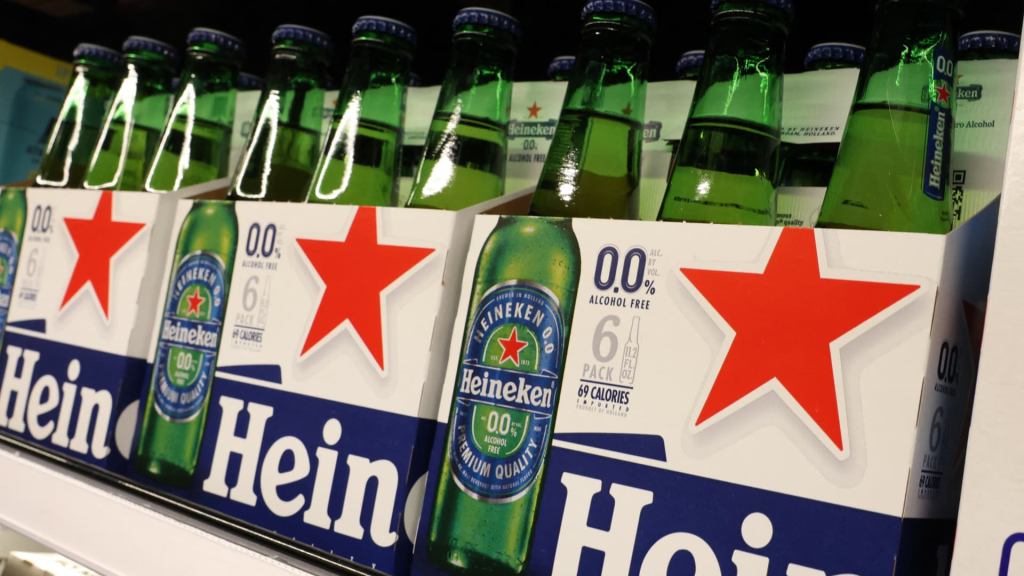Heineken has recently heightened its concerns over potential business disruptions related to new tariffs after initially dismissing these threats earlier in the year.
In the company’s earnings report published on Wednesday, Heineken outlined that prospective U.S. tariffs, especially those aimed at canned beer, may compel it to revise its spending and investment strategies.
“We face broader uncertainties, including recent tariff changes and possible escalations ahead,” the firm stated in its earnings release. “To adapt to this volatile environment, we are prepared to be flexible in how we allocate our capital and resources.”
Although the steep tariffs imposed by the Trump administration on several countries are currently subject to a 90-day deferral, a 25% duty on imported canned beer and empty aluminum cans became effective earlier this month.
Despite tariff-related uncertainties, Heineken reported first-quarter revenue growth that surpassed analysts’ expectations, maintaining its full-year guidance. However, the company’s beer sales experienced a decline of 2.1% during the first quarter.
CEO Dolf van den Brink acknowledged the likelihood of weaker beer sales, citing ongoing worries from inflation, subdued consumer sentiment, and currency fluctuations, alongside the uncertainty stemming from global tariffs.
Van den Brink’s remarks reflect a shift from previous statements made in February, where he characterized the proposed U.S. tariffs, including those on aluminum for beer cans, as “relatively manageable.”
“The beer industry relies heavily on capital and is very localized. Therefore, it tends to be less affected by disruptions in international trade,” he noted during an appearance on “Squawk Box Europe” back in February.
At the same time, AB InBev, which owns prominent brands like Budweiser and Stella Artois, had similarly minimized the potential impact of tariffs.
“We don’t foresee major issues regarding tariffs this year,” said CEO Michel Doukeris.
However, the escalation of a global trade conflict has prompted Heineken and others in the market to reevaluate their positions.
Constellation Brands recently reported a positive quarterly earnings outcome but also adjusted its long-term projections for 2027 and 2028, partly attributing this to the expected effects of tariffs.
“The guidance we have provided acknowledges the numerous uncertainties currently in play, including tariffs,” CEO Bill Newlands explained.


























